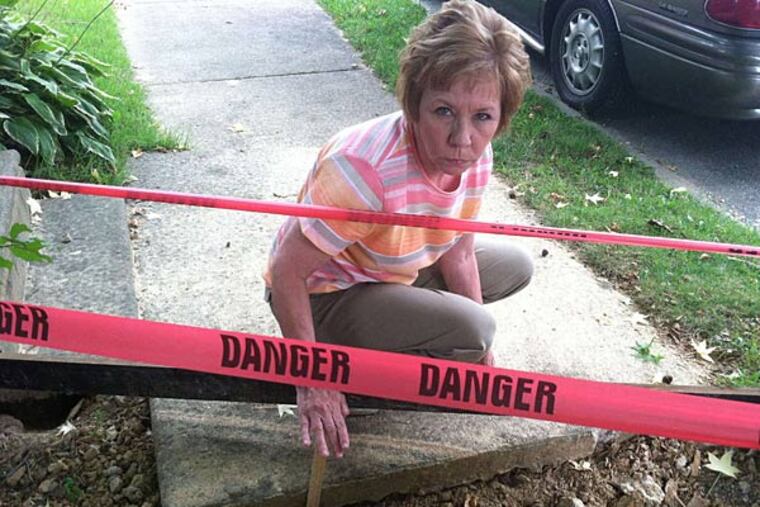Greetings from the worst job of 2013
There are, I'm told, less-stressful, better-paying jobs out there.

MY JOB sucks.
It's worse than cleaning backed-up toilets, picking up rotting garbage and driving around busloads of grumpy riders.
At least that's what CareerCast.com thinks: The jobs website ranked newspaper reporter as dead last out of 200 jobs for 2013.
Look, I'm not some nostalgic, delusional print dinosaur hearkening back to the good old days. There is much - sooo much - that's wrong with newspapers these days. (Note to online commenters: We know. No need to repeat yourselves.)
There are, I'm told, less-stressful, better-paying jobs out there. That's partly why when I left my job at a newspaper in Connecticut and moved to Philadelphia, I vowed to stay out, to replenish my sanity and my bank account. And yet, here I am, celebrating one year today at the Daily News.
Complicated and tortured as my relationship with my chosen vocation is, the reason is simple: Newspapers still matter.
And no, that's not just some hokey statement to justify my second tour of duty. Every day, my colleagues at the Daily News and across the hall at the Inquirer - and at newspapers all across the country - make a lasting impact on their communities. And on the lives of people who, often, when they have nowhere else to turn, when no one else will listen, still turn to their local newspapers for help. And get it.
Just this year, my fellow columnists Stu Bykofsky and Ronnie Polaneczky helped get busted sidewalks fixed, better enforcement of sprawling sidewalk cafes and long-neglected and dangerous neighborhood eyesores taken care of.
When a man who found an abducted 5-year-old in January was still waiting for his 10 grand in reward money nearly three months later, questions and a story by my colleague Stephanie Farr finally got him paid.
A YouTube video showing cops behaving badly had been on the Internet for more than a week. But stories by my cubicle-mate William Bender, Polaneczky and Morgan Zalot helped get a(nother) bad cop off the streets.
Stories by Zalot and Dana DiFilippo about a young woman and her three kids, killed as they were crossing Roosevelt Boulevard, helped drum up donations for the family to hold their funerals. Stories by David Gambacorta about a Wawa clerk who was pummeled and robbed as she waited for her bus in Port Richmond also led to donations, and free dental care.
I like to think that the newspaper columns I wrote about a bunch of dismissed ex-cons who were screwed out of a prevailing wage 10 years ago played a small part in finally getting them paid last month.
And although we're technically competitors, stories by my Inquirer colleagues often get results. Michael Newall's five-part series on the fifth anniversary of the unsolved murder of a 23-year-old aspiring teacher didn't just keep the tragedy in the news - the supervisor on the case said it provided the spark to get the evidence they needed to make an arrest. (I could go on and on with examples of stories that got things done, but you get the idea and, as we all know, newspaper space is shrinking.)
My point - other than sucking up to people I admire - is that with such a tumultuous time in newspapers, it's easy to see why being a newspaper reporter wouldn't rank high on a jobs list, why some might crunch data on environment, income, outlook and stress, as CareerCast.com says it did, and decide that the job stinks.
But as any reporter knows, numbers only tell part of the story. And as my colleague, politics editor Chris Brennan - whose own work on bad towing once led to 19 L&I investigations - often says, "It still beats working for a living."
Phone: 215-854-5943
On Twitter: @NotesFromHel